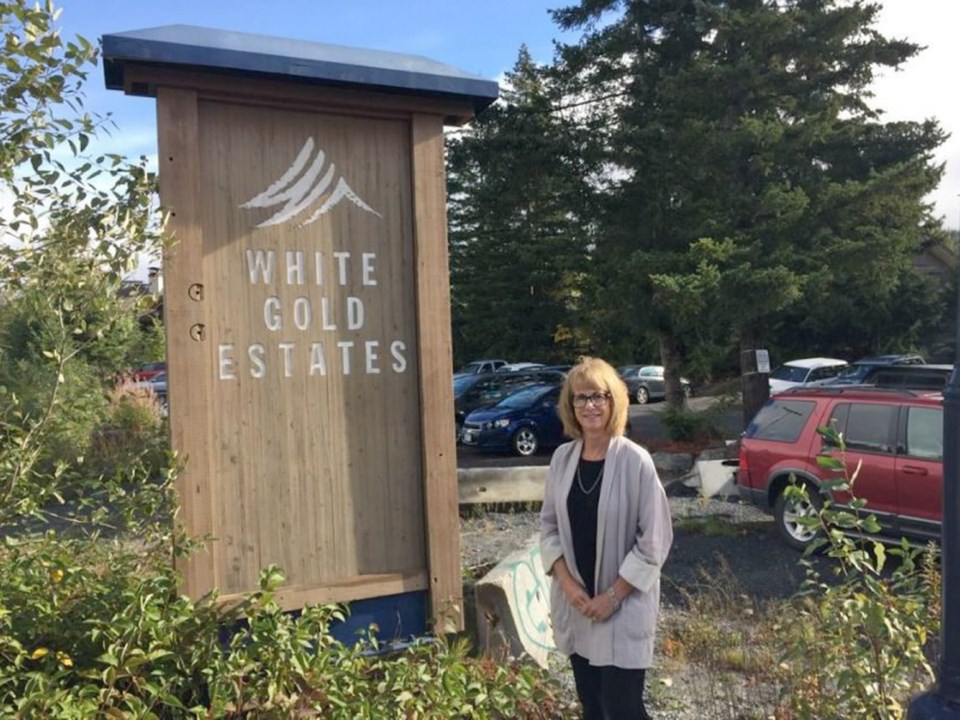WHISTLER — As Whistler’s mayor for more than seven years, Nancy Wilhelm-Morden has always been aware of the importance of housing for the resort. When she arrived in Whistler in the 1970s with the man who would become her husband, housing was so limited that they squatted for four years before they could find a place to live.
Today, she’s knows some people work two or three jobs to pay to live in one of the world’s top resorts. For Wilhelm-Morden, addressing housing has been a big part of her career as a politician in Whistler.
After a total of 17 years in elected office during different periods, Wilhelm-Morden isn’t seeking re-election in the municipal vote on Oct. 20. She agrees that housing continues to be on everyone’s mind in Whistler.
“I don’t know if it is a big issue for the election,” she said. “I know it’s a big issue in the community.”
You don’t have to look far to find examples of its importance in the four-season resort. So far this year, municipal bylaw officers have issued 731 tickets to people living in their vehicles. That’s more than double the 341 tickets issued to people living in vehicles in 2017. The fine was recently increased from $75 to $100.
In mid-September, an illegal campsite was removed a short walking distance from hotels where international tourists can pay $1,000 or more a night for rooms during the winter season.
As many as 12 tents were on an island in Fitzsimmons Creek between the skateboard park and the Upper Village, said Adrian Moran, co-owner of 50 North Exterior Property Detailing, which was contracted by the resort to clear the illegal camp.
In The Pique, he said the campsite had been purposely hidden from prying eyes.
He told Postmedia News that enough garbage was removed to fill three trucks or about 1,000 pounds.
Much to his surprise, the camp even had a sofa bed.
“I don’t know how the hell they got it up the river,” he said by phone. “We had to cut it up with saws to get it out of there.”
Moran said it was by far the biggest of four illegal camps his company had removed for the municipality this year. At the other sites, Moran found resumés, work uniforms and name tags, which indicate that at least some of the people living in the camps were Whistler employees.
As Whistler enforces rules on what it considers illegal housing, the municipality plans to add significantly to its stock of accommodation for residents, including units restricted to employees overseen by the Whistler Housing Authority, which is owned by the municipality. The authority’s 2,034 units provide housing for about 6,500 employees and their families.
Iin September, Whistler council continued the rezoning process for five private-sector projects for employees. Although some have generated significant public opposition, including one at the entrance to White Gold Estates at the intersection of Highway 99 and Nancy Greene Drive, the projects could provide rental accommodation for almost 700 people.
Another project is by Vail Resorts, which operates Whistler Blackcomb. It has announced plans to build 200-dorm-style units for its staff in its housing complex within walking distance of Excalibur Gondola. And on Oct. 1, the resort held an open house at Westin Resort & Spa on Cheakamus Crossing Phase 2. Spanning several years, the project will add employee-restricted housing for 550 people on land left as a legacy of the Athletes’ Village for the 2010 Winter Olympics.



